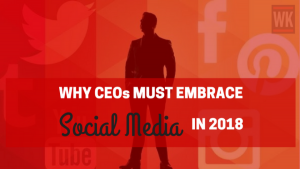While the majority of the workforce continues to work at home, a major challenge for leaders in the foreseeable future is one of keeping their employees engaged, productive, and happy through this time of stress and unknown. This challenge, like many others, is one that falls very squarely on the shoulders of your managers. Ever wonder why some teams are far happier than others within the same company? It comes down to managers and how they treat and appreciate their people. Managers account for at least 70% of the variance in employee engagement scores.
What’s the easiest tool managers have in their arsenal to boost engagement? Employee recognition.
Recognition makes employees feel seen, valued, and like they’ve accomplished something worthwhile. They feel better about the work they’re doing, the people they work with, and their relationship with the company as a whole. The more recognized they feel, the more likely they are to be satisfied in their job and have a clear understanding of how their work makes a difference for the company.
What Does Employee Recognition Look Like?
Employee recognition manifests itself in many ways, but it is most impactful coming from a place of sincere gratitude for someone’s contributions. Contributions can be large or small, but the act of someone noticing and appreciating your performance makes you want to keep exceeding expectations. Evaluating an employee’s performance isn’t one thing in particular, it’s an active, moving body of ideas pushing toward an objective. There is no one way to be recognized, but whatever you do, make sure your standards are consistent. There is nothing worse than one employee being recognized for a job well done and another employee accomplishing a similar thing with no gratitude. Inconsistencies can make things confusing, and an organization risks contradicting itself if one team receives a job well done for one thing, but another team would deem it par for the course or even subpar.
Recognition doesn’t have to be monetary or an award—appreciation for a job well done can manifest itself in many ways. With so many employees working from home, there are some great opportunities to get creative. Maybe they are awarded with a special Zoom background for that week’s team meeting. Maybe food gets delivered to their home, paid for by the company. Maybe you find them the last roll of toilet paper.
Remote recognition during Coronavirus could take many forms. Here are some other ideas:
- A public shout out on the all-staff Slack thread or MS Teams channel
- A shout out from peers or leaders in Inspire with a fun badge commemorating their great accomplishment
- Private recognition from a leader, peer, or customer sent via email — if a manager receives a glowing review for an employee from a client, let them know!
- A Grubhub stipend for a company-paid lunch
- An extra day off to use at their discretion to spend time on their chosen quarantine hobby
- A bonus, raise, or promotion
The Impact Of Recognition
Strong leaders are ones who not only give recognition, but encourage it from everyone. A company culture with strong recognition practices—including shout outs and celebrations between coworkers, from leadership, and from all areas of the organization —increases engagement and boosts morale. Be careful, however, not to give praise for the sake of praise. You can’t force a recognition-focused culture by giving disingenuous praise. It will be identified as such, and it will no longer resonate the same way. Take the time to understand what the company values are, and look for behaviors that reinforce them. Be aware of the things your team does to support each other, and notice them by expressing gratitude and celebrating their success.
Here are four key areas where recognition can make significant impact on a company:
- Work Environment and Culture: The more often employees feel recognized for a job well done, the more they perceive the workplace to be fun and supportive.
- Retention Rate: When employees feel valued and seen, they’re more likely to thrive in their environment, and stick around for the long term.
- Peer-to-Peer Relationships: The more praise employees hear about themselves and their teammates, the more enthusiastic they feel about the people they work with.
- Manager Relationship: When employees feel like their managers appreciate them, trust grows and relationships get stronger.
Recognition And Remote Employees
Even before the Coronavirus, businesses were headed for more and more remote employees. Between 2005 and 2017 alone, remote staff increased by 159%. Many businesses believe that the key to successful remote teams comes down to the technology and tools they can provide—but that’s not the whole answer. While, yes, certain tools are needed to access company assets, file share, communicate with the team, etc, the tools themselves can’t make an employee productive.
A major challenge for remote employees is feeling disconnected from their organization. Now that we aren’t all heading into the office every morning, it’s easy to feel like we never see or hear from our colleagues, know less about what’s happening with other teams, and generally feel in the dark about the goals everyone is working towards. Organizations need to find a way to instill confidence, transparency, and convey information in a timely manner. Tools alone aren’t going to do that. Only proper communication channels can empower employees to feel that they have all the information they need to be effective.
Recognizing remote employees when they’ve reached a goal, met an objective, went above and beyond for a customer, or helped out a teammate can help maintain the lifeflow from the organization to the individual, ensuring that while they remain distant, they don’t feel distant. It’s an easy way to let employees know that they are seen, valued, and not forgotten.
Employee recognition is a simple strategy that leads to big results. We’d love to show you more about the ways Inspire builds feedback and recognition directly into your flow of work, lifting your people and your culture while working toward the business results you want. Especially now, we all need to know that our work is seen and that it matters—and when we do it well, we’ll be recognized for it.
Business & Finance Articles on Business 2 Community
(42)






